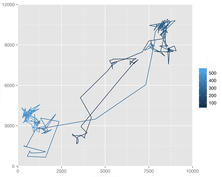Publication trimestrielle du Laboratoire
d'analyse et d'architecture des systèmes du CNRS
With the rise of the so-called cognitive robotics, the need of advanced tools to store, manipulate, reason about the knowledge acquired by the robot has been made clear. But storing and manipulating knowledge requires first to understand what the knowledge itself means to the robot and how to represent it in a machine-processable way. This work strives first at providing a systematic study of the knowledge requirements of modern robotic applications in the context of service robotics and human-robot interaction. What are the expressiveness requirement for a robot? What are its needs in term of reasoning techniques? What are the requirement on the robot's knowledge processing structure induced by other cognitive functions like perception or decision making? We propose a novel typology of desirable features for knowledge representation systems supported by an extensive review of existing tools in our community. In a second part, the thesis presents in depth a particular instantiation of a knowledge representation and manipulation system called ORO, that has been designed and implemented during the preparation of the thesis. We elaborate on the inner working of this system, as well as its integration into several complete robot control stacks. A particular focus is given to the modelling of agent-dependent symbolic perspectives and their relations to theories of mind. The third part of the study is focused on the presentation of one important application of knowledge representation systems in the human-robot interaction context: situated dialogue. Our approach and associated algorithms leading to the interactive grounding of unconstrained verbal communication are presented, followed by several experiments that have taken place both at the Laboratoire d'Analyse et d'Architecture des Systèmes at CNRS, Toulouse and at the Intelligent Autonomous System group at Munich Technical University. The thesis concludes on considerations regarding the viability and importance of an explicit management of the agent's knowledge, along with a reflection on the missing bricks in our research community on the way towards "human level robots".





